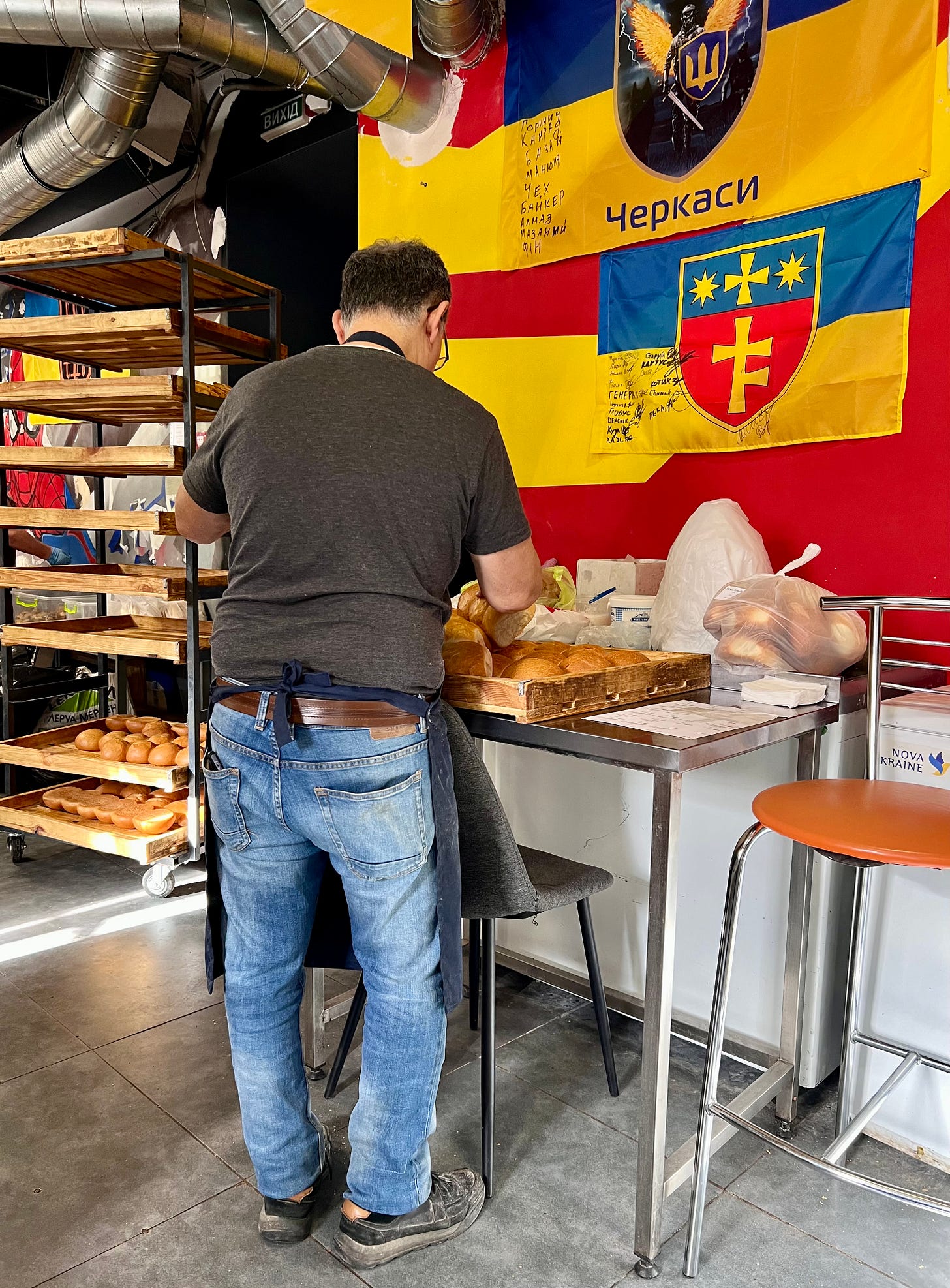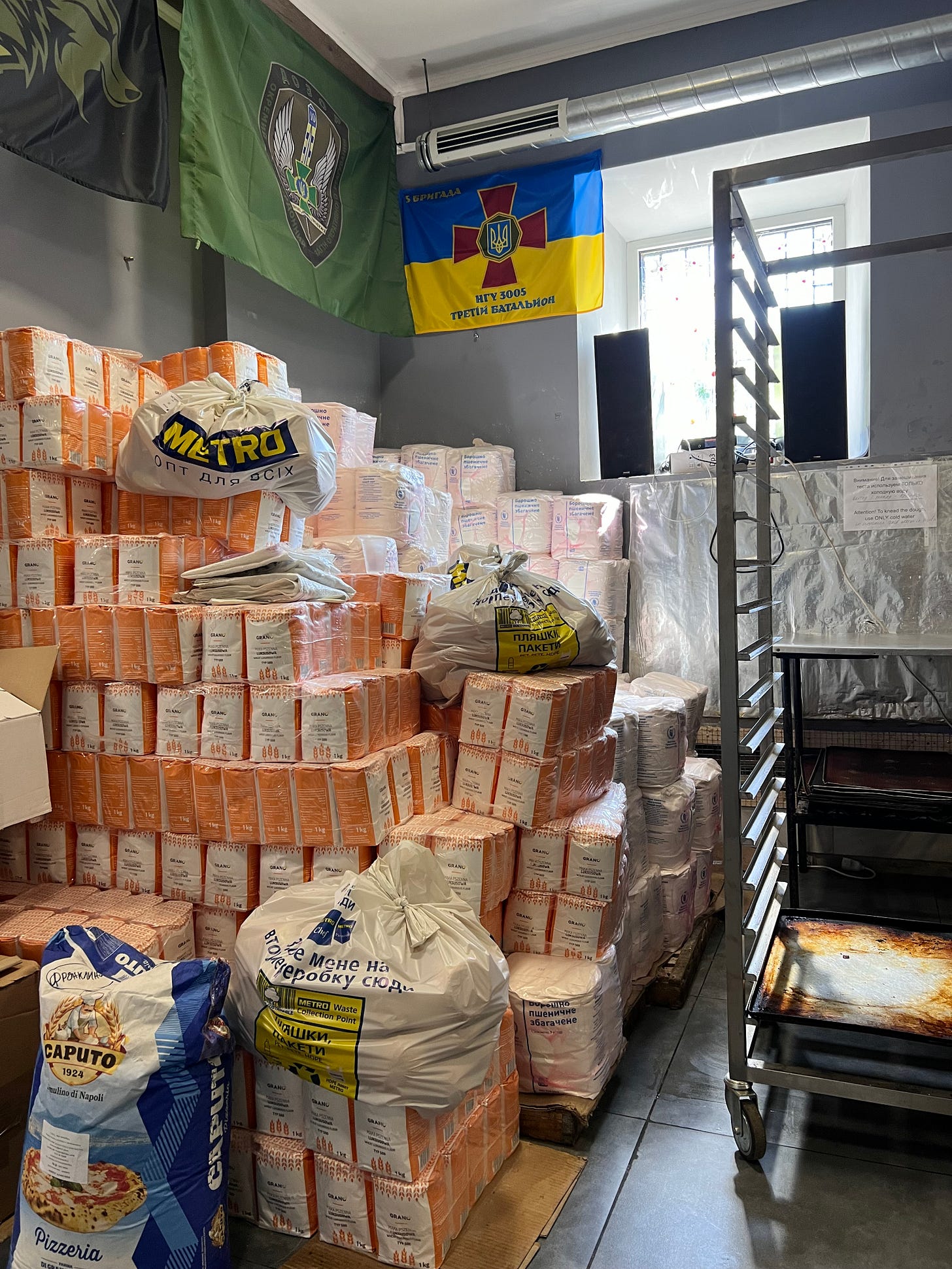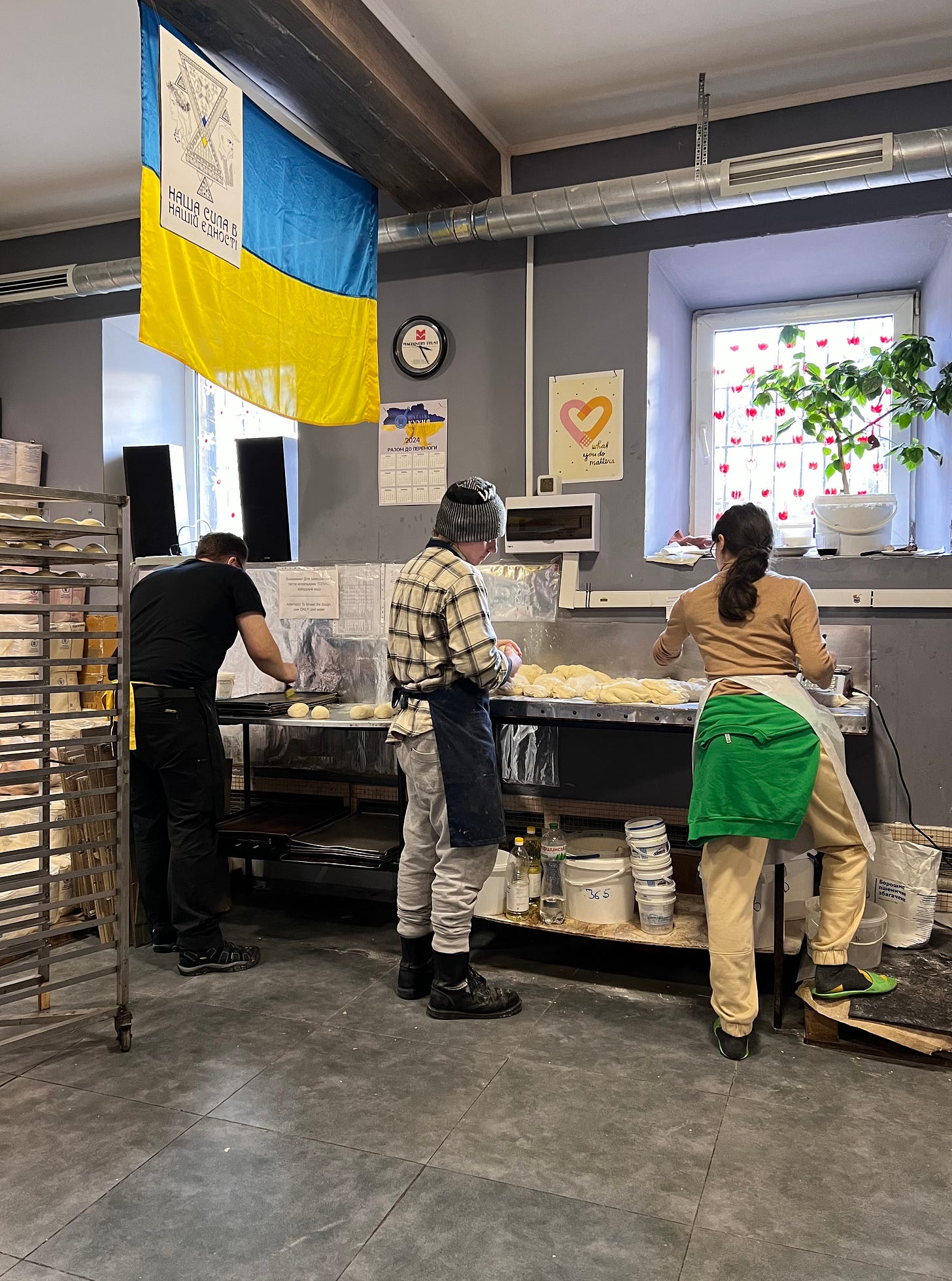The real Hell’s Kitchen - in Kharkiv
The work never stops at the Kharkiv Hell’s Kitchen charity and with the upsurge in attacks on the city - their mission to feed those in need has never been more vital.
The last time I was in Kharkiv just over a week ago, I had planned another visit to the excellent Hell's Kitchen charity, where volunteers make bread and hot meals for people in need. As I arrived in their building, they said they'd just received a security alert from a contact, warning that a missile attack was highly likely - everyone must get out of the building, and leave the city centre by 4pm, they were told. Without any sign of panic, they were rushing to take bread out of the oven and cool it down enough to package up, while portioning the rest of the dough for storage in the walk in fridge so it wouldn't spoil overnight.
The charity - whose name has nothing to do with the Gordon Ramsay television show and everything to do with being a kitchen in a place which is, literally, hellish, was set up by Yehor and Liuda Horoshko at the start of the full scale war, after they left their jobs in IT behind to come to the aid of their city. Hell's Kitchen has since become a hub for essential supplies - while also providing around a thousand meals a day and 1,500 bread rolls, which are delivered to a number of hospitals and villages in the region. "Everybody in our kitchen is a volunteer", Liuda says. "They work for free. But it is real work, they have all made a commitment and quite a big part of the team have been here since the very start."
They've been helped by financial donations from big organisations like World Central Kitchen and the World Food Programme - as well as smaller organisations and donors, and a church which has provided the flour they use for their bread. It's a mutually beneficial arrangment: "Trinity church give us flour and from time to time we give them food, for example recently we gave them some canned meat, because we had been sent a lot of it."
The team work round the clock, with no days off. "We don't have weekends, we don't take vacations, some of the team work seven days a week, although most work anything from three to five days, it depends."
Two years in, they've expanded their work to help hospitals which are struggling to cope with a huge increase in patients - not just those injured in the war, but also because clinics in frontline locations like Vovchansk and Kupyansk have been forced to close down. "As a result they have a very, very heavy load. They don't have budgets to feed so many people - so we concentrate on both medical supplies and support." They now help as many as nine hospitals, providing wholesome, good quality meals with fresh ingredients. "All the people we work with are happy to give us feedback, we normally send four or five different dishes across the week, and they say they are happy with the quality and the taste." They work with civilian hospitals, but say a lot of injured soldiers are also treated there - especially psychological departments which are suddenly dealing with a lot of neurological traumas: it's become a huge challenge to provide enough help.
The couple have absolutely no regrets about their decision to drop their IT careers and open the kitchen. " In the first days of the invasion, Kharkiv was not blocked but it was closed, supply chains were broken and deliveries were very limited. The bread factory stopped working, so it was impossible to find bread anywhere - and we decided to start baking bread." With such simple ingredients, water, flour and salt, they made it a priority to continue baking every day. They try to deliver to villages where exisiting support has been very limited - and to be as efficient as possible with their resources. "We understood that it's in the hospitals where our help can make a really big impact.So we will keep trying to provide help where it is really, really needed".
Their workflow and efficiency has improved a lot since they first started: they have teams, schedules - all of it evolving as they go along. "Just like the Russians believed they would take Kyiv in three days, a lot of Ukrainians also believed this would all stop in 3,4,5 days, it was so hard to believe that your city would be bombed, no one can be prepared for that."
In those early days it was utterly chaotic - and hard to describe, Liuda says, how difficult it was working in a tiny kitchen space, unable to venture outside because of the bombing. Hence the name, Hell's Kitchen: they would dash out to load up big trucks in a few minutes, "all very fast because everyone was afraid for their families, for their children. People slept here for months, in the basement. So you feel that it is really like hell."
Since the start of 2024 the situation has got hellish yet again: with ever more frequent Russian shelling, attacks on residential areas and in the city centre, at all times of the day and night. And most recently, the Russian push across the border into Vovchansk and nearby villages has brought more violence, with thousands more people forced to flee their homes, and seek refuge in Kharkiv.
Hells Kitchen, with its community of volunteers from all over the world, remains ready to help. On that last visit, everyone calmly hurried to bag up hundreds of bread rolls for delivery, before the deadline when they'd been warned the city centre was likely to come under missile attack. It was a few minutes after four, and one of the staff members was about to lock up. "Are you coming?" "Yes" came the reply. "I am here to fight for my city, not to die in it."








My heart bleeds for Kharkiv and all Ukraine
I love them, and I’ve been supporting them since 2022! Thank you for writing about this amazing organization and incredible people! ❤️